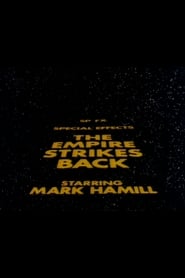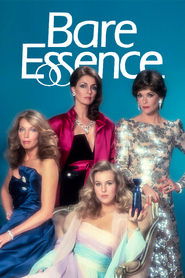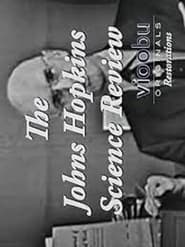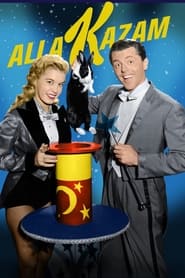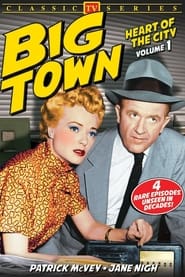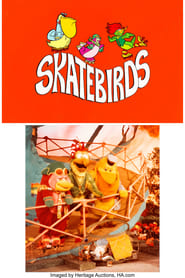Cbs TV Series - Page 64
-
SP FX: The Empire Strikes Back
0000
SP FX: The Empire Strikes Back is a television documentary special which originally aired on CBS on September 22, 1980. Hosted by actor Mark Hamill, it is a behind-the-scenes look at the creation of the special effects in the second Star Wars film, Star Wars Episode V: The Empire Strikes Back, which was released that year. The special was written by Richard Schickel and directed by Robert Guenette, who had both previously worked on the 1977 special The Making of Star Wars. -
Bare Essence
1982
Bare Essence
1982
Miniseries along the lines of a soap opera which centers on one young woman, Tiger Hayes, as she starts up a perfume company. The usual soap plots of adultery, romance, corruption, and greed abound. -
Princesses
1991
star 8.5Princesses is a short-lived American situation comedy that aired on CBS in 1991. The series was produced by Universal Television and only lasted five episodes because of low ratings, likely due to direct competition from ABC's Top 30 hit Family Matters and NBC's Top 40 show Matlock. The series also aired in Germany on RTL in 2004. The series theme song, "Someday My Prince Will Come" was written by Frank Churchill and Larry Morey, and was sung by The Roches. -
Crosswalk the Musical
2015
The theatrical flare that has led to viral segments such as “Carpool Karaoke,” has also leant itself to more ambitious and sillier work inspired by Late Late Show writers. “Crosswalk the Musical” is an ongoing Late Late Show segment that features Corden, celebrity guests, and extras charging into busy crosswalks to sing snatches of musicals before the light changes color. -
Now You See It
0000
star 7Now You See It is an American television game show created by Frank Wayne for Mark Goodson-Bill Todman Productions. Two seasons were produced, and both aired on CBS. The first season ran from April 1, 1974 until June 13, 1975, and was hosted by Jack Narz. The second season ran from April 3 until July 14, 1989 and was emceed by veteran Los Angeles news anchor Chuck Henry. Johnny Olson was the original announcer, with Gene Wood substituting on occasion. Los Angeles disc jockey Mark Driscoll announced for the first month of the 1989 season, with Don Morrow replacing him for the remainder of the run. Although several tweaks to the game were made over the time Now You See It was on the air, the core format remained the same. Contestants competed to find words on a grid that was similar to a word search puzzle that served as answers to questions asked by the host. -
CBS Children's Film Festival
0000
CBS Children's Film Festival is a television series of live action films from several countries that were made for children. Originally a sporadic series airing on Saturday mornings, Sunday afternoons, or weekday afternoons during the summer from 1967, it became a regularly scheduled program in 1971 on the CBS Saturday morning lineup, running one hour with some films apparently edited down to fit the time slot. The program was hosted by 1950s television act Kukla, Fran and Ollie, aka puppeteer Burr Tillstrom and actress Fran Allison. Kukla, Fran and Ollie were dropped from the series in 1977 and the program was renamed CBS Saturday Film Festival. In 1978 CBS canceled the show in favor of the youth targeted magazine 30 Minutes which was modeled after its adult sister show 60 Minutes. CBS canceled 30 Minutes in 1982 and brought back Saturday Film Festival which ran for two seasons until CBS cancelled it for good in 1984. Perhaps the most famous "episode" of the series was the 1960 British film Hand in Hand, the sto -
The Johns Hopkins Science Review
0000
The Johns Hopkins Science Review is a US television series about science that was produced at Johns Hopkins University from 1948-1955. Starting in 1950, the series aired on the DuMont Television Network until the network's demise in 1955. The series' creator was Lynn Poole, who wrote or co-wrote most of its episodes and acted as the on-camera host. In 2002, Patrick Lucanio and Gary Coville wrote that, "In retrospect, Lynn Poole created one of those unique series that allowed television to fulfill its idealized mission as both an educational and an entertainment medium." The original series was followed by three related series produced by Poole at Johns Hopkins University: Tomorrow, Tomorrow's Careers, and Johns Hopkins File 7. Johns Hopkins University ended its production of television series in 1960. -
CBS Sports Spectacular
0000
CBS Sports Spectacular is a sports anthology program produced by CBS Sports. The series began on January 3, 1960 as The CBS Sports Spectacular, and has been known under many different names, including CBS Sports Saturday, CBS Sports Sunday, Eye on Sports and The CBS Sports Show. The program continues to air on an irregular basis on weekend afternoons, especially during the late spring and summer months. Normally it airs pre-recorded "time-buy" sports events produced by outside companies, such as supercross or skiing competitions, or sponsored documentaries. -
Our Private World
0000
Our Private World
0000
Our Private World is an American serial. The storyline started on As the World Turns, with Lisa boarding a train to Chicago and the announcer encouraging the audience to watch the spin-off. Upon arriving, Lisa took a job in the admitting room of the local hospital and met her wealthy future husband John Eldredge. A few months after the demise of the series, Fulton returned to As the World Turns. -
Extraordinary World With Jeff Corwin
2025
Host Jeff Corwin teams up with everyday people who are making an extraordinary impact on the world through animal advocacy, wildlife conservation, youth empowerment and aiding those dealing with food insecurity issues. -
The Magic Land of Allakazam
1960
The Magic Land of Allakazam was the name of a groundbreaking series of network television shows featuring American magician Mark Wilson. It ran from 1960 to 1964 and is credited with establishing the credibility of magic as a television entertainment. -
Child's Play
0000
star 1Child's Play is an American television game show in which adult contestants tried to guess words based on definitions given by children. The Mark Goodson-produced series debuted on CBS from September 20, 1982 at 10:30 am Eastern/9:30 am Central. That time slot was held by Alice for a little over two years. Child's Play was never able to make ratings headway against either Wheel of Fortune or Sale of the Century, two hit game shows that NBC aired opposite it; CBS ended the series on September 16, 1983 and replaced it with Press Your Luck, which performed much better for CBS. Perhaps the first inklings of the format appeared on a 1967 episode of Goodson-Todman's earlier series I've Got a Secret, on which guest Woody Allen read children's definitions of words for the panel to guess. Child's Play host Bill Cullen was a member of that series's panel. -
Big Brother After Dark
0000
A curated live feed from inside the house to give viewers a peek into the housemates' lives that they don't always get to see during the prime-time shows. -
The Briefcase
2015
star 1THE BRIEFCASE features hard-working American families experiencing financial setbacks who are presented with a briefcase containing a large sum of money and a potentially life-altering decision: they can keep all of the money for themselves, or give all or part of it to another family in need. -
Beane's of Boston
0000
Beane's of Boston
0000
Beanes of Boston was a pilot episode for a proposed American adaption of the British sitcom Are You Being Served?. Though written by the original writers of the British series and starring John Hillerman, who would go on to fame in Magnum, P.I., the series was not picked up. -
The Harlem Globetrotters Popcorn Machine
0000
The Harlem Globetrotters Popcorn Machine is a Saturday morning variety show featuring players from the basketball team the Harlem Globetrotters singing, dancing, and performing comedy sketches. Broadcast in 1974, it was produced by Funhouse Productions and Yongestreet Productions for CBS Productions. -
Big Town
1950
star 6Big Town is a popular long-running radio drama series which was later adapted to both film and television and a comic book published by DC Comics. -
Secret Celebrity Renovation
2021
star 7Celebrities in sports, music and entertainment are given the chance to gift a surprise home renovation to a meaningful person who helped guide them to success. -
The Skatebirds
1977
The Skatebirds
1977
The Skatebirds is a 60-minute show on CBS Saturday mornings from 1977–78, produced by Hanna-Barbera Productions. The Skatebirds lasted only a half-season in its original run from September 10, 1977 to January 28, 1978. In the fall of 1979, the show was cut down to a half-hour by removing The Robonic Stooges and Woofer And Whimper, Dog Detectives and broadcast on CBS Sunday mornings on and off until January 1981. In the late 1980s, a different shortened version of The Skatebirds was shown on USA Cartoon Express and later resurfaced on Cartoon Network and Boomerang. -
Blackout
0000
Blackout
0000
Blackout is an American game show that aired on CBS from January 4 to April 1, 1988. The pilot was hosted by former Entertainment Tonight anchor Robb Weller, but he was replaced for the series by Bob Goen. Johnny Gilbert was announcer for most of the run, with Jay Stewart taking over for the last two weeks. The show was a Jay Wolpert production.
